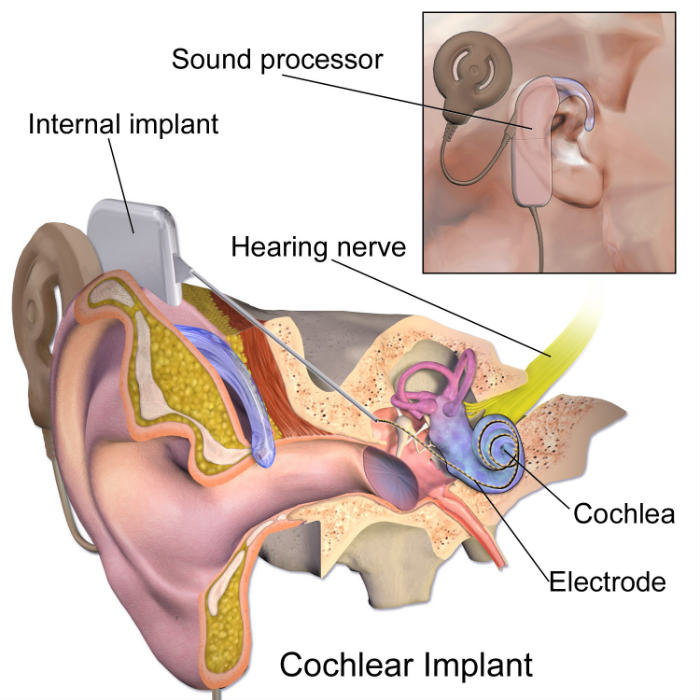- Impaired hearing is a physical deficit that is linked to cognitive decline, physical injury, social isolation, and depression.
- Aural deficit and depression are more common in elderly, women.
- Hearing loss is associated with depression at any age.
- Elderly patients aged 65 to 94 years experienced improved speech perception with cochlear implants.
- Study included 94 patients, 81% of whom showed improved cognitive abilities following cochlear implantation. Benefits were observable within 6 months postop.
Hearing Loss as a Public Health Problem
As the population of the United States continues to age, and the aged live longer, the incidence of hearing impairment continues to grow. Even moderate hearing loss can lead to significant social isolation, which can in turn lead to depression. This triplet of clinical deficits is most common in the elderly and in women and is best treated in a multimodal manner.
“Hearing loss is associated with poor cognitive performance and incident dementia and may contribute to cognitive decline. Treating hearing loss with hearing aids [Figure 1] may ameliorate cognitive decline,” concluded the authors of a recent article in PLOS One.
Similarly, the use of cochlear implants (Figure 2) has been shown to produce profound benefits in elderly patients according to a study published recently in JAMA and a subsequent report on MDalert.com. 
What You Can Do
While the data accumulate on the comorbidities associated with hearing loss, so do the solutions. First, a hearing exam should be part of the routine physicals that physicians perform on all patients. If hearing loss is detected, it is appropriate to refer the patient to an audiologist, ENT specialist, or otolaryngologist.
If one of these specialists recommends hearing aids or cochlear implants, prepare yourself to advocate for your patient as the two of you seek reimbursement for this intervention.
The Benefits of Intervention
While hearing loss appears to be a natural effect of aging, increasing age is not the only cause. Other cases are related to occupation and can occur in younger patients. Other cases are often the result of accident or trauma, such as proximity to an explosion or repeated gun fire. Both musicians and soldiers are frequently affected by hearing loss at relatively early ages. Other cases are idiopathic.
No matter the cause, interventions such as hearing aids and cochlear implants are frequently beneficial to these patients. These interventions can lead to strengthened social relationships, greater personal safety, improved quality of life, reversal of cognitive decline and longer-lasting, closer bonds with loved ones.
“Participants reported a considerable level of satisfaction with their hearing aids. Appropriate guidance for using hearing aids and spending more time for counseling can improve the satisfaction level of this age group,” according to an article in the Journal of Audiology and Otology.
Barrier to Hearing Aids: Cost
According to an article in The New York Times, one of the most frequent barriers to patients being treated with hearing aids is cost. The best aids can cost $5,000 to $15,000 or more per pair -- but many insurers will not reimburse this cost.
Physicians and physician practices must be prepared to advocate for these patients. The case must be made that the hearing loss itself is not the core disability. Instead, it is a physical deficit that is linked to cognitive decline, physical injury, social isolation, and depression. For these reasons, the argument goes, the hearing aids are medically necessary for the patient’s safety and well being.
Anti-Depressants and Hearing Aids
Any depressed patient is a candidate for anti-depressants and an elderly patient with hearing loss is no exception. If you have a patient who shows signs of depression, treat the depression. If the patient also has hearing loss, do what you can to help that patient get hearing aids or cochlear implants.
